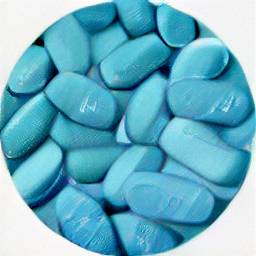Viagra active ingredient
The active ingredient in Viagra is sildenafil, which is a type of phosphodiesterase (PDE5) inhibitor. Sildenafil works by inhibiting the PDE5 enzyme, which is responsible for the breakdown of cyclic guanosine monophosphate (cGMP). cGMP is a key player in the erectile process, as it relaxes smooth muscle cells and allows blood to flow into the penis. When PDE5 is inhibited, cGMP levels remain high, allowing for an erection to occur.

Viagra was originally developed as a treatment for angina pectoris (a heart condition), and it was found to be effective in improving erections when used for this purpose. However, it wasn’t until several years later that the drug’s true potential was realized. In 1998, Viagra became the first oral treatment approved by the FDA for erectile dysfunction.
Today, Viagra remains one of the most popular treatments for ED, and has helped millions of men around the world achieve and maintain an erection. While there are other PDE5 inhibitors available on the market today (such as Cialis and Levitra), Viagra remains one of the most effective options.

Sildenafil, also known as Viagra, is a popular treatment for erectile dysfunction. It works by relaxing the blood vessels in the penis, allowing more blood to enter and causing an erection.
Sildenafil is available in tablets of 25mg, 50mg and 100mg. The usual starting dose is 50mg, but some men may need a lower or higher dose depending on their medical history and other medications they are taking.
Sildenafil should be taken about 30-60 minutes before sex. It can be taken with or without food but it is best to take it on an empty stomach so that it works more quickly. You should not take more than one tablet in 24 hours and if you have certain medical conditions your doctor may advise you to take a lower dose or take it less often.

Side effects of sildenafil include headaches, flushing, indigestion and dizziness. These are usually mild and temporary side effects but if they persist or are bothersome you should speak to your doctor. More serious side effects include changes in vision (such as blue tinge to vision), sudden decrease or loss of hearing and priapism (a painful erection lasting for more than four hours). If you experience any of these side effects you should seek immediate medical attention as they could be a sign of something more serious such as a heart attack or stroke.
Understanding the Role of Viagra in Treating Erectile Dysfunction
Viagra, whose active ingredient is sildenafil, has earned renown as a highly effective treatment for erectile dysfunction. This drug functions as a phosphodiesterase (PDE5) inhibitor and works by inhibiting the PDE5 enzyme. This particular enzyme plays a major role in breaking down cyclic guanosine monophosphate (cGMP), a substance that is crucial to the erectile process.

cGMP’s main function is to relax smooth muscle cells, which facilitates blood flow into the penis. By inhibiting PDE5, cGMP levels remain high, which enables an erection to occur. Initially, Viagra was developed as a potential treatment for angina pectoris, a type of heart condition. Interestingly, during its development, researchers discovered its effectiveness in improving erections. However, it was only several years later that the true potential of this drug came to light. In 1998, the FDA approved Viagra, making it the first oral treatment for erectile dysfunction.
Fast forward to today, and Viagra remains one of the most sought-after treatments for ED. It has helped millions of men worldwide achieve and maintain an erection. Despite there being other PDE5 inhibitors on the market today such as Cialis and Levitra, Viagra continues to stand out as one of the most potent options available.

A Closer Look at Sildenafil: The Power Behind Viagra
Sildenafil, better known as Viagra, has gained popularity as a go-to treatment for erectile dysfunction. Its mechanism of action involves relaxing the blood vessels in the penis. This relaxation allows more blood to enter the penis, leading to an erection.
Sildenafil is available in tablet form in doses of 25mg, 50mg, and 100mg. Typically, the starting dose is 50mg. However, depending on a man’s medical history and other medications they might be taking, some men may require a lower or higher dose.
It is recommended that sildenafil be taken approximately 30-60 minutes before sexual activity. It can be consumed with or without food, but for quicker absorption, it’s best taken on an empty stomach. It’s crucial not to take more than one tablet within a 24-hour period. Those with certain medical conditions may need to take a lower dose or take it less frequently, as advised by their doctor.

Potential Side Effects of Sildenafil
Like any medication, sildenafil comes with a list of potential side effects. These include headaches, flushing, indigestion, and dizziness. Usually, these side effects are mild and temporary. However, if they persist or become bothersome, it’s advisable to consult your doctor.
More serious side effects can include changes in vision, such as a blue tinge to vision, sudden decrease or loss of hearing, and priapism (a painful erection lasting for more than four hours). If you experience any of these severe side effects, it’s imperative to seek immediate medical attention. Such symptoms could indicate a more serious underlying condition like a heart attack or stroke.
Viagra and Its Impact on Sexual Performance
Viagra has made a significant impact on sexual performance for many men. By promoting blood flow to the penis, Viagra aids in achieving and maintaining an erection, thereby enhancing sexual performance. For a comprehensive understanding of how Viagra influences sexual performance, read here.
Long-Term Use of Viagra: Is it Safe?
Many men question the safety of long-term use of Viagra. Research indicates that when taken responsibly and under the supervision of a healthcare provider, long-term use of Viagra is generally safe. However, it’s always important to consult with your doctor regarding any concerns about long-term use. Read more about the long-term use of Viagra here.
Viagra and Potential Side Effects: What You Need to Know
While Viagra has proven to be a game-changer for many men struggling with erectile dysfunction, it’s essential to be aware of potential side effects. Headaches, flushing, and dizziness are among the common side effects. More severe side effects, although rare, can include sudden changes in vision or hearing and prolonged, painful erections. Get detailed information on Viagra’s potential side effects here.
Viagra and Recreational Use: Is it Safe?
The recreational use of Viagra is a topic that raises many questions. While some individuals may use Viagra recreationally, it’s important to note that it should only be used under the guidance of a healthcare provider. Learn more about the recreational use of Viagra here.
Viagra and Age: Is it Safe for Older Men?
As men age, the likelihood of experiencing erectile dysfunction increases. Many older men wonder if it’s safe to use Viagra. Generally, Viagra can be safely used by men of all ages, provided they don’t have certain health conditions. However, it’s always recommended to consult with a healthcare provider before starting any new medication. Find out more about Viagra and age here.
Viagra and Diabetes: What You Need to Know
Diabetes can often lead to erectile dysfunction. Viagra can be an effective treatment option for men with diabetes, but it’s essential to discuss this with a healthcare provider. Learn more about Viagra and diabetes here.
Viagra and Heart Health: Is it Safe for People with Cardiovascular Conditions?
Heart health is a critical consideration when using Viagra. Although Viagra can be safe for people with cardiovascular conditions, it’s crucial to discuss this with a healthcare provider. For more information on Viagra and heart health, click here.
In conclusion, while Viagra has revolutionized the treatment of erectile dysfunction, it’s vital to use it responsibly and under the guidance of a healthcare provider. Always make sure to discuss any potential risks or side effects before starting Viagra.